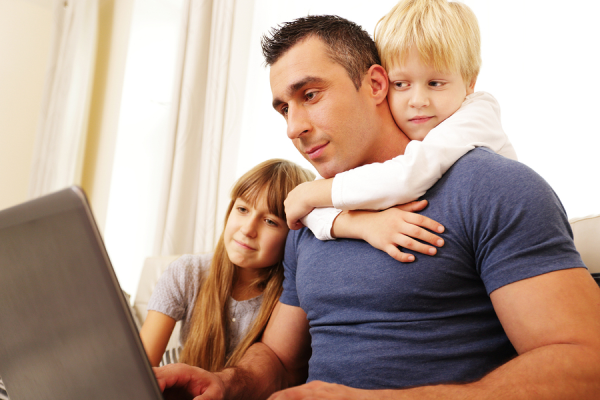
A divorce is hard on everyone involved, especially children. It can be a scary and confusing time for young kids but they can get through it with help and support. As their father, you can help your children cope with your divorce to ensure that they continue to have good relationships with both of their parents. Here are a few ways you can support your kids through your divorce.
Have Conversations With Your Children
Sometimes parents can become so preoccupied during a divorce that they forget to just talk with their children. Take the time to talk with your kids, but don’t only focus on the divorce. Talk about what’s going on in their lives, talk about how they’re feeling and reassure them that everything is going to be okay. Maintain your relationship with your kids by having lots of conversations with them, no matter what your child custody results are.
If there are any issues that are coming up in your divorce, such as child custody proceedings, it’s important to talk with your children beforehand to prepare them. The more they know, the more they will be able to cope with whatever happens.
Your children might have a lot of questions about what is going to happen, like who they’ll live with, where they’ll spend the holidays, who they'll spend the summer with and whether they’ll have to go to a different school. Try to answer them as best as you can and be as honest as possible.
Make sure that your children know that their feelings are valid. They might feel upset, sad, angry, relieved, or all the above. Recognize their feelings, verbalize them in your conversations with them and let them know that it’s okay to feel that way.
Don’t Rely On Your Children
Going through a divorce is a difficult, emotional time for you, but always make sure that you don’t use your children as a sounding board or emotional support. They are still children and should be treated as such. You’re still their father and they should feel that they can depend and lean on you, not the other way around. If you feel that you need to talk to someone, consider professional help for yourself or talk with family and friends you trust.
Don’t Speak Badly of the Other Parent
No matter what your feelings are for your children’s other parent, don’t speak negatively of them in front of your kids. Tell them that their mother loves them as much as you do and support their relationship as much as you can.
However, if you feel that their other parent might not be able to provide your children a safe place, talk with your divorce lawyer about your options.
Also, when you all are together, don’t engage into heated discussions and legal talk with their mother. Try to keep things civil when you’re around your kids. If you’re still feeling hurt and bitter about the divorce, a mediator or divorce counselor might be able to help you air out your issues with your ex-spouse away from your kids.
Continue Your Daily Routine
Try to make sure that your children’s daily routine is unchanged as much as possible throughout the divorce. So much is already changing for them, so having a daily routine will be comforting to your kids. Work with your kids’ mother on being consistent with rules, discipline, bedtimes, homework, chores, and more. You might feel tempted to spoil the kids a little bit, since they’re going through so much, but doing so will only make them feel insecure. Instead of later bedtimes or more lax rules, give them more affection and attention.
Your children are probably used to seeing both parents on a daily basis, so a divorce might feel especially hard if they suddenly stop seeing one of them as much. Try to make sure that they have one-on-one time with each parent as much as possible to maintain relationships.
Tell Them It’s Not Their Fault
Many children of divorce feel that they must have somehow caused the divorce to happen. They feel guilty for all the “bad” things they’ve done. When you break the news of the divorce to them and in any future conversations, make sure to reassure them that they had nothing to do with the dissolution of your marriage.
Watch For Behavioral Changes
Different children have different reactions to their parents’ divorce. Some might be willing to talk with you a lot about everything that’s happening, while others might clam up and express their feelings in other ways. Keep a look out for behavioral changes, including but not limited to:
-
Moodiness, sadness, and/or anxiety
-
School problems like skipping classes, lower grades, getting in trouble
-
Difficulties with friends
-
Change in appetite
-
Change in sleeping patterns
-
Alcohol and/or drug use
-
Rebelliousness
If you think that your children are struggling with one or several of the issues mentioned above, try to intervene as much as you can. Getting professional help from school or elsewhere in the community might be helpful.
Consider Getting Professional Help
If you feel like you’re out of your element when trying to help your children through your divorce, consider seeking professional help in the form of therapists, support groups, or counselors. They all can help your children deal with their new reality and give them a chance to talk about their feelings with people other than their parents. These professionals will also have the tools to help them with any serious issues that you might not be equipped to handle.
Above all, let your children know that you love them and that they can continue to rely on you as their father. Many children of divorce grow up into well-adjusted adults who can handle stress and life changes better than other people. Help your children through this difficult transition and they’ll come out of it just fine.



